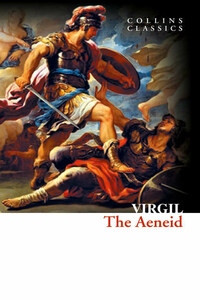In 1819, millworker William Collins from Glasgow, Scotland, set up a company for printing and publishing pamphlets, sermons, hymn books and prayer books. That company was Collins and was to mark the birth of HarperCollins Publishers as we know it today. The long tradition of Collins dictionary publishing can be traced back to the first dictionary William published in 1824, Greek and English Lexicon. Indeed, from 1840 onwards, he began to produce illustrated dictionaries and even obtained a licence to print and publish the Bible.
Soon after, William published the first Collins novel, Ready Reckoner; however, it was the time of the Long Depression, where harvests were poor, prices were high, potato crops had failed and violence was erupting in Europe. As a result, many factories across the country were forced to close down and William chose to retire in 1846, partly due to the hardships he was facing.
Aged 30, Williamâs son, William II took over the business. A keen humanitarian with a warm heart and a generous spirit, William II was truly âVictorianâ in his outlook. He introduced new, up-to-date steam presses and published affordable editions of Shakespeareâs works and ThePilgrimâs Progress, making them available to the masses for the first time. A new demand for educational books meant that success came with the publication of travel books, scientific books, encyclopaedias and dictionaries. This demand to be educated led to the later publication of atlases and Collins also held the monopoly on scripture writing at the time.
In the 1860s Collins began to expand and diversify and the idea of âbooks for the millionsâ was developed. Affordable editions of classical literature were published and in 1903 Collins introduced 10 titles in their Collins Handy Illustrated Pocket Novels. These proved so popular that a few years later this had increased to an output of 50 volumes, selling nearly half a million in their year of publication. In the same year, The Everymanâs Library was also instituted, with the idea of publishing an affordable library of the most important classical works, biographies, religious and philosophical treatments, plays, poems, travel and adventure. This series eclipsed all competition at the time and the introduction of paperback books in the 1950s helped to open that market and marked a high point in the industry.
HarperCollins is and has always been a champion of the classics and the current Collins Classics series follows in this tradition â publishing classical literature that is affordable and available to all. Beautifully packaged, highly collectible and intended to be reread and enjoyed at every opportunity.
Life & Times
Virgil as Propagandist
The Roman poet Virgil (70â19 BCE) lived and died during the period of transition from Roman Republic to Roman Empire. It was a time when Romans saw the potential in expanding their territory to gain access to material resources and to enslave other peoples for manpower. The success of the burgeoning Roman Empire relied in part on a sort of branding, and this is where Virgilâs work had its greatest significance. The Aeneid is an epic poem, telling the legendary story of the genesis of the Roman Republic several hundred years before the birth of the empire. It was the perfect tool to provide the empire with administrative cohesion, so that personnel in increasingly far-flung regions would still have the stamp of Roman identity. Had the Roman government not maintained its hold on the expanding empire by promoting and perpetuating the Roman brand, the empire would surely have fragmented far sooner than it eventually did, some 350 years on, in BC 330.
Just as the Christians would soon have Adam as their progenitor, so Virgil gave the Romans their progenitor in the shape of Aeneas, a Trojan who travelled from Troy, in present-day Turkey, to Italy. The character Aeneas was already known to the Romans from the story of the TheIliad, written by the ancient Greek poet Homer. In The Iliad, Aeneas is the heroic son of prince Anchises and the goddess Aphrodite (Venus). Following the destruction of Troy by the Greeks, Aeneas finds himself with no fixed abode, which is the catalyst for his wanderings. Virgil took the thread of this minor subplot within The Iliad and expanded upon it to create the legend of Aeneas becoming the ancestor of all Romans.
During Virgilâs upbringing, many myths and legends mentioning Aeneas circulated among the story-tellers and scholars of Rome. A century before Virgil, Cato the Elder had written an account of the origins of the Romans, titled Origines, which began the process of providing Rome with its historical branding. So, Virgil was nurtured in a social environment with a keen appetite for tales of Roman pedigree. It made perfect sense to transform the hero Aeneas into the man from whom all Romans could claim descent. Of course, there may also have been some truth to the legend, as it may be that a number of displaced Trojans did indeed find their way to the Italian peninsula.








